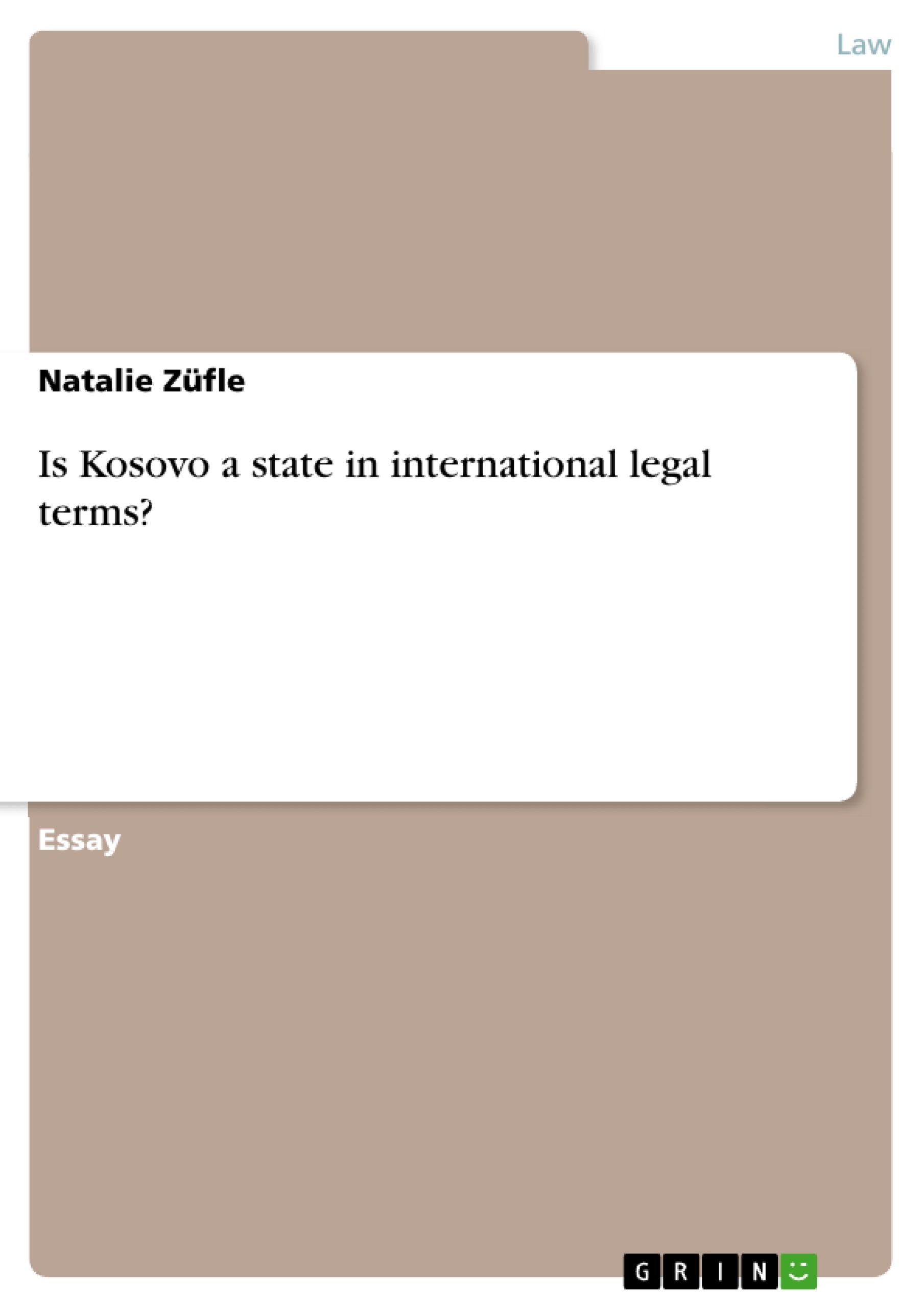On 17 February 2008, Kosovo province declared its independence from the Republic of Serbia in order to become a separate republic. Kosovo's declaration of independence is quite controversially discussed, splitting the international community. Accordingly, Kosovo at present is only a partially recognized state within the international community.
Is Kosovo a state in international legal terms?

Essay , 2008 , 3 Pages , Grade: 1,6
Autor:in: Natalie Züfle (Author)
Law - European and International Law, Intellectual Properties
Excerpt & Details Look inside the ebook

